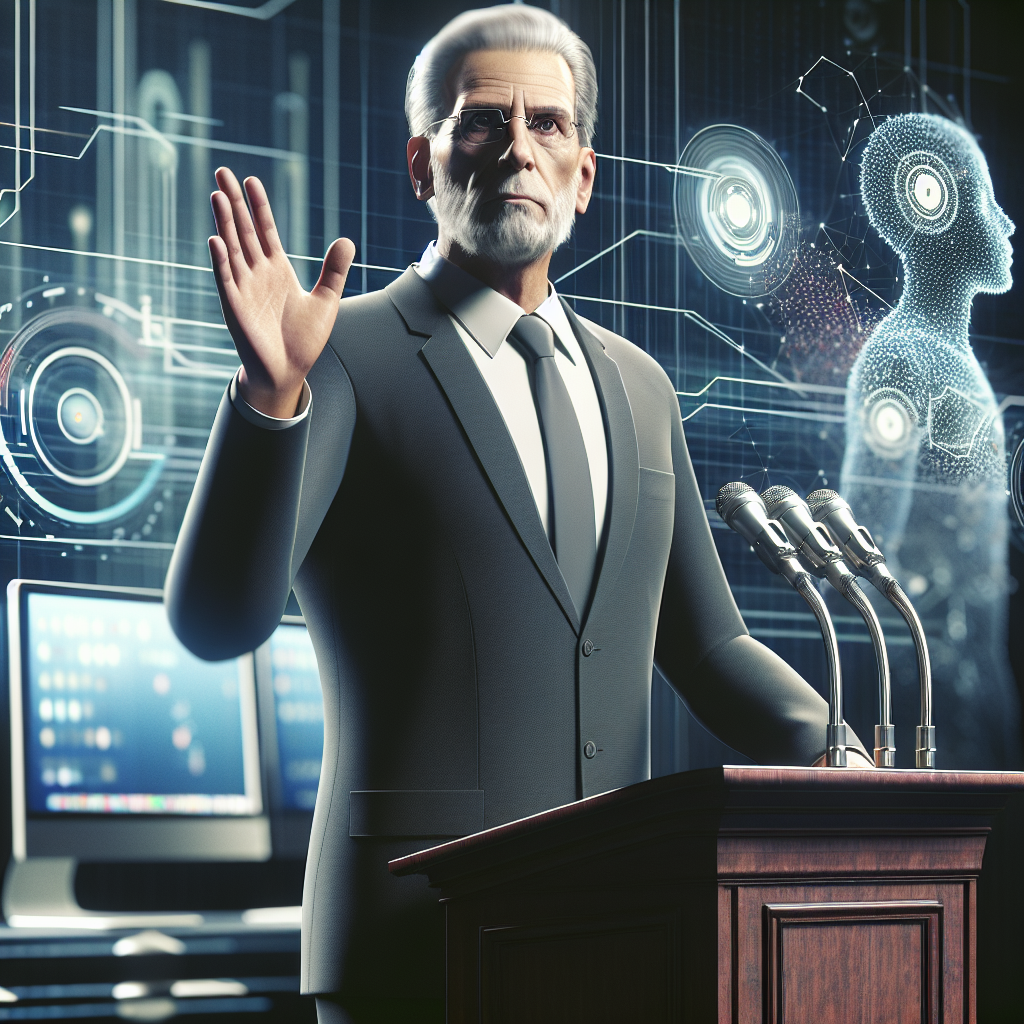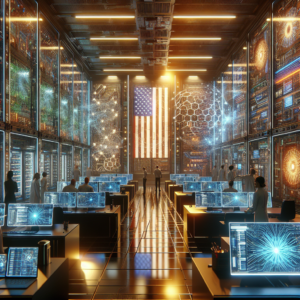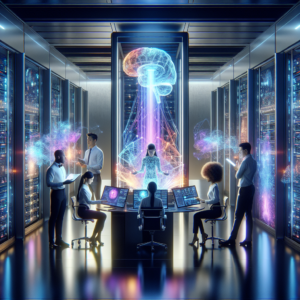Trump Shrugs Off Elon Musk’s Criticism of AI Announcement
In a recent turn of events in the tech and political world, former President Donald Trump has responded to Elon Musk‘s critiques regarding his announcement on artificial intelligence (AI). Musk, the CEO of SpaceX and Tesla, has long positioned himself as a visionary in the realm of technology, particularly in AI development. He has also been vocal about the potential dangers that unchecked AI poses to humanity. However, Trump’s dismissal of Musk’s comments has sparked renewed debate around the relationship between politics, technology, and the future of AI.
The Context of the Announcement
Trump made headlines with his latest announcement focused on a new initiative aimed at regulating and promoting the safe use of AI. This initiative is positioned against the backdrop of escalating concerns about AI technologies, including deepfakes, autonomous weapons, and the potential for job displacement due to automation. At its core, Trump’s announcement seems to advocate for a balanced approach that encourages innovation while ensuring public safety and ethical considerations are taken into account.
However, not everyone is on board with Trump’s proposals. Musk, who has previously expressed alarm over the rapid advancement of AI without sufficient regulation, took to social media to voice his discontent. In his characteristic style, Musk argued that the former president’s approach was flawed and that it did not adequately address the significant risks that AI technologies could pose.
Trump’s Response to Musk
In a recent interview, Trump shrugged off Musk’s criticisms, suggesting that the billionaire tech mogul “hates one of the people” involved in the initiative. This statement has drawn attention not only for its dismissive tone but also for its implication of personal conflict rather than substantive debate over the issues at hand.
Trump’s retort has highlighted the ongoing tension between political leaders and influential figures in the tech industry. As technology continues to evolve at a rapid pace, the landscape of public discourse seems to be shifting towards a more polarized environment where personalities often overshadow the underlying issues.
The Ramifications of AI Regulation
As discussions around AI regulation intensify, it’s crucial to consider the potential implications for innovation, economic growth, and public safety. Trump’s initiative can be seen as part of a broader trend among governments worldwide to establish regulatory frameworks for technologies that have the potential to disrupt everyday life.
Innovation vs. Regulation
One of the primary concerns with regulation is the balance between fostering innovation and ensuring safety. Many proponents of AI argue that stringent regulations could stifle creativity and slow down technological advancements. They contend that a more open environment is necessary for the next generation of AI applications to thrive, potentially leading to breakthroughs that could solve pressing global issues.
On the other hand, critics of a laissez-faire approach point to the potential dangers of unregulated AI, including ethical dilemmas, privacy violations, and even catastrophic failures of AI systems. This side argues that it is essential to implement guidelines and regulations that can prevent misuse and protect the public from the unforeseen consequences of AI technologies.
Public Sentiment and AI
Public sentiment regarding AI is also evolving. Many individuals are becoming increasingly aware of AI technologies and their implications for society. A recent survey indicated that a significant portion of the population is concerned about the ethical use of AI and the potential for bias in AI algorithms. This growing awareness may push political figures, including Trump, to take a more measured approach to AI regulation, as they respond to constituents’ concerns.
The Future of AI and Politics
The intersection of politics and technology, particularly in the realm of AI, is becoming more pronounced. As AI technologies develop, they will inevitably influence political decision-making and public policy. The challenge for leaders will be to navigate these changes while addressing public concerns and fostering a climate conducive to innovation.
The Role of Influential Figures
The involvement of influential figures like Elon Musk in these discussions cannot be overstated. Musk’s opinions carry significant weight due to his status as a tech leader and visionary. His critiques of Trump’s AI initiative can shape public perception and influence the direction of policy.
As such, the relationship between public figures and political leaders will continue to be a critical factor in shaping the future landscape of AI. If tech leaders and politicians can find common ground, they may be able to forge a path that balances innovation with safety.
What Lies Ahead
The future of AI regulation is yet to be determined. As debates continue to unfold, it is essential for all stakeholders, including government officials, tech leaders, and the public, to engage in constructive dialogue. This dialogue should focus not only on the potential benefits of AI but also on the ethical considerations and safety measures that must accompany its advancement.
Trump’s dismissal of Musk’s critique serves as a reminder that personal relationships can significantly impact political discourse. However, it also highlights the importance of addressing the substance of the issues involved, rather than allowing personalities to dominate the conversation.
Conclusion
As the conversation around AI regulation evolves, it will be essential for all parties to engage thoughtfully. The stakes are high, as the future of technology impacts virtually every aspect of modern life. If leaders can steer the discussion towards constructive solutions, the outcome could lead to a more balanced approach that harnesses the power of AI while safeguarding society.
In the coming months and years, it will be interesting to see how Trump’s initiatives evolve and how tech leaders like Musk respond. Ultimately, the dialogue surrounding AI will shape not only the technological landscape but also the political landscape as we move forward into an increasingly automated future.



